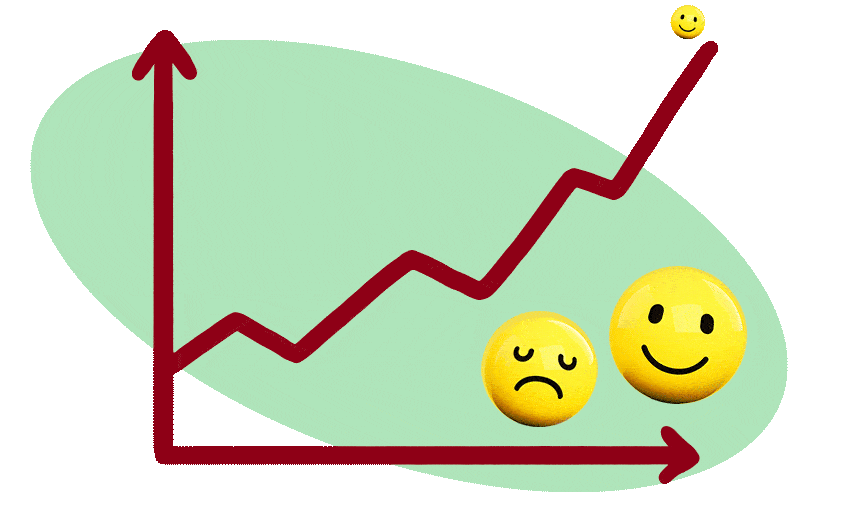New Zealand researchers discovered high inflation or unemployment rates deeply affect how people feel. So why hasn’t the Reserve Bank been in touch?
Robert MacCulloch doesn’t want to talk to The Spinoff. Neither does he want a New York Times journalist on the other end of the phone. Don’t get him wrong: the University of Auckland economics professor appreciates the sudden surge of interest in a research paper titled ‘How does monetary policy affect welfare?’ that he and two colleagues wrote several years ago. He even understands why.
About three years ago, the trio cribbed the results of the Gallup World Poll, a 12-year survey that collected data from 1.5 million people, and used it to discover intimate links between rising inflation and unemployment rates, and how they affect the mental health and wellbeing of a country’s population. Their findings were stark.
MacCulloch and his co-authors Hamed Shafiee and Lina El-Jahel found direct links to how people feel. “People report themselves being more distressed … their life satisfaction drops,” MacCulloch says. “There’s a link between the state of the economy and people’s mental health.”
Journalists have suddenly become interested in this. That’s because inflation’s been so low for so long – “boring” is how McCulloch describes the past 20 years in Aotearoa, where inflation has rarely risen above 4%. Now that it’s reached 7.3%, a 32-year high, it’s suddenly all anyone’s talking about. In the US, it’s even worse: at 9.1%, it’s at its highest rate since 1981. And in the UK, it’s a whopping 9.4%.
Remember, inflation affects the cost of everything. When rates go up, each dollar suddenly doesn’t stretch as far. The sky-high prices we’re paying in supermarkets, or for mortgages and rent, can all be affected by rising inflation, which the Reserve Bank is mandated to keep under control each month. When petrol costs more than $3 a litre, and a block of cheese $20, it’s no wonder it’s constantly on our minds – and on the front pages of newspapers and websites every day.
So while MacCulloch understands why journalists are suddenly calling him, it’s not us he wants to hear from. He’d like Te Pūtea Matua, the Reserve Bank of New Zealand, to get in touch. “You’ve rung up and the New York Times rang up about it,” says MacCulloch when I called him late last week. “The amazing thing is that the Reserve Bank’s never rung up. It’s never shown a molecule of interest … I’ve had zero interest. Why not?”
It’s a fair question. If they did call him, MacCulloch would be able to tell the Reserve Bank about his paper’s fascinating findings. Despite running a similar study in the 90s, even MacCulloch was surprised by what he and his colleagues uncovered. Our emotional wellbeing can be influenced by rising inflation. Every time rates go up, you’re more likely to experience sadness, anger or physical pain.
That’s right: inflation could be causing you physical pain. “If inflation … goes to 10%, there’s a 4% chance you’re likely to feel physical pain,” confirms MacCulloch.
So inflation’s high, and that’s one of the reasons we might be feeling bad right now. The good news? Unemployment is low, at just 3.2%. That’s unlikely to change anytime soon, with across-the-board staff shortages. MacCulloch’s research found increases to unemployment rates have a much greater impact on our wellbeing when compared to inflation. That’s because there are two costs. “If you lose your job, that hurts. If the overall unemployment rate is high, that hurts you too … it produces a fear that if you lose your job you might not get another one.”
All of this was done using unbiased data. The trio took the Gallup findings, which asked questions about happiness, life satisfaction and wellbeing, then compared it with their personal circumstances, and the inflation and unemployment rates where they lived. “The person doesn’t know that you’re doing it, but you can find out, statistically, that that person seems less happy because they just got divorced, or the inflation rate’s high.”
Their findings have been available online for a while now, but they’ll soon be published properly for the first time in the American Journal of Money, Credit and Banking. MacCulloch hopes someone at the government, or the Reserve Bank, reads the results and gives them a call. After all, its key takeaways state: “The NZ government should better define what aspect of well-being it would like the RBNZ to promote in order to implement its statutory objective,” and, “The results suggest that the RBNZ should focus more of its research efforts on collecting and analysing these kinds of data.”
MacCulloch, or any one of the team that put the paper together, are ready and willing to present the results so the Reserve Bank can see exactly what happens every time interest rates go up. He hopes they do. “They were given an objective to implement monetary policy with the ultimate aim [of] improving wellbeing in the country,” he says. “I thought they would have asked one of us to actually present there or at least contacted us about it. It’s directly relevant to their mandate.”
If the Reserve Bank is reading this, MacCulloch’s contact details are available here. He’s waiting for your call.
Follow Bernard Hickey’s economics podcast When the Facts Change on Apple Podcasts, Spotify or your favourite podcast provider



